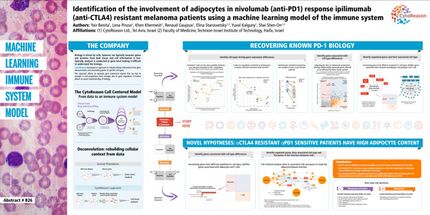SEQUENOM Signs Research Agreement with Translational Genomics Research Institute
SEQUENOM, Inc. announced a research agreement with the Translational genomics Research Institute (TGen) where SEQUENOM will provide TGen access to its candidate gene portfolio of targets associated with an individual's predisposition for skin cancer. TGen will further validate these candidate genes against its expression databases with regard to their potential use as diagnostic markers for skin cancer risk and the clinical prognosis of skin cancer patients. As appropriate, products developed from this study will be jointly owned and commercialized.
"We are excited about working with SEQUENOM in order to add an extensive clinical genetics component to our melanoma research programs," stated Jeffrey Trent, Ph.D., TGen's President. "We hope this collaboration will result in promising new methods for the diagnosis and treatment of melanoma, the most devastating form of skin cancer that affects over 50,000 people per year in the US alone."
"TGen is a world-leading institution in the area of melanoma research, and we are excited about their commitment to our disease gene portfolio," said Toni Schuh, Ph.D., SEQUENOM's President and Chief Executive Officer. "This collaboration exemplifies SEQUENOM's strategy and efforts to leverage our discovery assets while moving towards profitability."
SEQUENOM has identified more than 60 candidate genes in breast, lung, prostate and skin cancers, central nervous system disorders, metabolic and cardiovascular diseases and musculoskeletal and inflammatory conditions through high-density genome-wide scans using its MassARRAY platform technology. Access to SEQUENOM's high throughput genetic analysis center, combined with SEQUENOM's SNP assay portfolio and DNA sample database, provide SEQUENOM with sufficient leverage to become a significant participant in the clinical research market for the supply of high quality genetic analysis, including clinical genetics and diagnostics for molecular medicine.
Most read news
Topics
Organizations
Other news from the department business & finance

Get the life science industry in your inbox
By submitting this form you agree that LUMITOS AG will send you the newsletter(s) selected above by email. Your data will not be passed on to third parties. Your data will be stored and processed in accordance with our data protection regulations. LUMITOS may contact you by email for the purpose of advertising or market and opinion surveys. You can revoke your consent at any time without giving reasons to LUMITOS AG, Ernst-Augustin-Str. 2, 12489 Berlin, Germany or by e-mail at revoke@lumitos.com with effect for the future. In addition, each email contains a link to unsubscribe from the corresponding newsletter.





















































